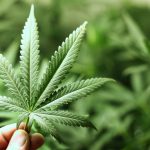If you find that your coffee breath (or boozy breath) lingers longer than you’d like, you’re not alone. Some foods (coffee and alcohol included) are more likely to contribute to bad breath. The good news? Other foods can help freshen things up.
According to Erin Fraundorf, DMD, MSD, an orthodontist and founder of BOCA Orthodontic + Whitening Studio, what you eat plays a huge role in the way your breath smells, especially on a microscopic level. In fact, certain foods that cause bad breath can disrupt the delicate balance of the oral microbiome.
So, what gives? Ahead, two dental health experts share the top seven foods that can promote bad breath, plus seven foods that can make it smell better.
How can food cause bad breath? Although there are many causes for bad breath, food is one of the main causes that can fuel the growth of bacteria. “When we eat, food debris sticks to various surfaces in our mouths—such as your teeth, tongue, and gum tissues—providing a food source for bacteria,” Dr. Fraundorf explains. As bacteria consume this food this can produce odor-causing acid, she says.
Michael Wei, DDS, a New York City-based cosmetic dentist, agrees that foods, particularly sugar-laden ones, can also create the ideal environment for bacteria to flourish. “Sugary foods can contribute to bad breath by creating an environment in the mouth where bacteria thrive and produce odorous byproducts,” Dr. Wei says.
That’s not all; Dr. Fraundorf also points out certain types of odorous foods can also cause bad breath by entering the bloodstream. “[The smell] is released with the breath, or during exhalation,” she says. Meanwhile, Dr. Wei notes that certain foods—like garlic, onions, and certain spices—contain sulfur compounds that can linger in the mouth and also lead to bad breath.
Ahead, we’re sharing seven foods (and drinks!) that can lead to bad breath.
1. Sugary foods: Sugary and carbohydrate-rich foods can cause bad breath. “A diet high in sugar and carbohydrates can lead to plaque buildup and bad breath due to how much oral bacteria like to feed on the sugars,” Dr. Fraundorf says.
2. Coffee: According to Dr. Fraundorf, coffee consumption can impact saliva production which can induce a bout of bad breath. “The caffeine in coffee leads to a decline in saliva production which subsequently increases odor-causing bacteria,” she says.
3. Garlic and onions: Garlic and onions are notorious for contributing to bad breath. But why? Dr. Fraundorf says they’re potent enough to get into your bloodstream. “These foods have a smelly sulfur compound that lingers in your mouth. Additionally, they get absorbed in the bloodstream and are expelled with each breath when you exhale,” she says.
4. Alcohol: Similar to coffee and caffeinated beverages, Dr. Wei says alcoholic drinks can have a drying effect on the mouth, causing bacteria to multiply and result in bad breath.
5. Dairy products: According to Dr. Wei, some dairy products, like milk and cheese, can promote the production of compounds that contribute to bad breath when broken down by bacteria in the mouth. For example, amino acids in dairy interacts with bacteria in your mouth, which can produce odorous smells and sulfuric release.
6. Spicy foods: Spicy foods can heavily impact digestion, which can lead to bad breath. “Spicy foods can increase the production of stomach acids, which can reflux into the mouth and cause bad breath,” Dr. Wei says. This is typically due to capsaicin, a compound in spicy food, that can stimulate gastric activity.
7. Fish: Fish contain proteins that can break down into foul-smelling compounds if not properly digested, leading to bad breath, says Dr. Wei. According to the American Society of Nutrition, this is due to trimethylamine (TMA), a chemical that can trigger this smell.
Stay tuned for part two, which will list seven foods and drinks that can promote good breath.






